In recent years, there has been a noticeable resurgence in the role of dedicated fleet manager as a new generation of business leaders realise that employing a knowledgeable professional to manage their company vehicles creates savings, improves compliance and brings strategic clarity.
For Laurie Carberry, director of procurement, fleet and utilities at Wheatley Group, it took an evolution of procurement processes within the housing, care and property management group before the need for a fleet manager became self-evident.
Initially working with service leaders, ordering vehicles to their specifications, on a fleet of 150-200 vehicles based in specific geographic locations, the process was elementary but served its purpose. However, as the fleet size grew beyond 400 vehicles, the added complexities demanded a new, more strategic approach.
“It was apparent from the size and scale of the organisation, our national context, our service levels with our customers and our ability to manage warranty issues and fleet dynamics had outgrown the service leader approach,” Carberry said. “It couldn’t be a bolt-on role; it needed a dedicated fleet manager.”
Supported by a paper from Wheatley’s insurance partner which highlighted risks and gaps in good practice, Carberry sought and attained board approval to create a fleet team.
In October 2022, she recruited Jenny Dolan as group fleet manager and Linzi Irving as fleet coordinator.
Such has been the immediate and comprehensive impact made by the team, the company won the coveted Most Improved Fleet Operator at the 2024 Fleet News Awards, a category sponsored by Fleet Operations.
Speaking shortly after collecting the trophy, Dolan seems astonished by the accolade, believing she is “not doing anything particularly special”, but her modesty is belied by an extensive list of achievements over the previous 12 months.
A motor trade career
After her original career goal “to play for Celtic” was dismissed by her school careers officer, Dolan began her fleet journey in the motor trade, gathering experiences in all departments from bodyshop to service and sales to admin.
While taking a career break to go travelling in Australia, she began working for a property management company before returning to the UK 10 years ago and spotting a job advert for a fleet position at Bidvest Noonan in Ireland.
“I thought ‘I can do that’. That's like a combination of my motor trade experience and property management. What's the difference between properties and vehicles?”
It turned out she could. Left to “figure it out for myself”, Dolan sought support from suppliers and other fleet experts to fill gaps in her knowledge before returning to Glasgow to become fleet manager and then head of fleet at construction firm Actavo.
Both fleets needed “fixing”, with lack of controls and an absence of robust fleet processes. Those skills were directly transferable to Wheatley Group which was in similar need of someone to tackle deep-rooted issues and establish a clear strategy.
The latter point is key, according to Carberry. “Fleet isn’t an operational fix anymore; it’s so much more strategic,” she said.
Dolan added: “You're always learning these days. There's always something coming up that you didn't know about. There are different projects to get stuck into - you get to use your brain!”
100 days to create an action plan
After joining Wheatley, Dolan was given 100 days to investigate the fleet – 409 vans, including 50 cage tippers, with another 40 vans on order, plus 20 cars - and identify areas of risk to implement an action plan.
The brief encompassed speed, compliance, driver behaviour, policies and procedures, vehicle utilisation, driver support and sustainability.
“The first thing I did was speak to the operational leads to get their list of vehicles,” she said. “And then I spoke to the suppliers to get the list of active vehicles to cross check to make sure that there was nothing that wasn't accounted for. Thankfully there wasn't.
“We found quite a few vehicles that weren't being utilised and we could off-hire them and save some money straight away.”
She also needed to connect the dots between vans and the 850 drivers; Wheatley doesn’t have a one driver/one van policy so needed a process whereby it could ascertain who was driving each vehicle at any given time. A Driver ID system is imminent.
Once she had the vehicles under control, the next step was to build relationships, both internally with operational leads, team managers and drivers, and externally with key suppliers. The latter turned out to be easy, helped by existing relationships from her other roles with Wheatley’s leasing partners.
“I had leasing companies on site, and I told them we wanted to improve, so they wanted to help as much as they could,” Dolan said.
“It was internal relationships that I had to build, and I was really surprised how forthcoming and helpful everybody was. I've walked into places previously as a new person and sometimes people don't really like fleet because they think we're just here to cause problems.”
Winning buy-in from the unions
She also quickly won over the trade unions with her determination to improve driver safety and ensure they are given high-quality, well-equipped vans with the latest safety technology. This proved particularly helpful when starting to roll out telematics and dashcams across the fleet.
“We re-wrote our safe driving handbook and sat down with the unions and our health and safety to explain why we needed telematics and what we were going to use it for,” Dolan said.
“The drivers had that peace of mind that there are processes in place.”
Her focus is on driving style and speeding to protect both drivers and the public. Speeding reports are automated daily for team leaders to discuss with their drivers, while incidents are reviewed monthly by the fleet team. Over the past year, the number of speeding cases has more than halved.
Dolan also has a place on the quarterly health and safety meetings where incidents, speeding and driving style are reviewed with operational directors and health and safety.
“Driver safety’s been a huge focus and it continues to be a huge focus. For me, that comes from the fact that when I worked in Actavo, I was part of the health and safety team,” she said.
Another successful initiative was the introduction of driver safety week, inspired by Brake’s Road Safety Week.
This roadshow sees Dolan travel nationwide to speak to drivers about safety via toolbox talks and interactive activities, such as daily checks and pin-the-tail on the stopping distances.
Wheatley’s internal fire safety team brought VR headsets from Scottish Fire & Rescue Service which gave drivers the experience of being involved in a serious crash.
The company’s well-being team was also on hand to explain benefits such as eye tests and massages, which can be claimed back.
“It transpires a lot of them suffer from bad backs so now they get massages on a monthly basis,” Dolan said.
“We made it interactive and fun because I think people learn better that way, but we also focused their attention on why it’s important to be safe on the road.”
Cost control and avoidance
In addition to risk and safety, cost control and avoidance has been the other priority over the past 12 months.
Dolan moved the fleet from flexible daily hire to contract hire, potentially saving more than £300,000 over three years, and improving the budgeting controls. Around a fifth of the fleet remains on flexible contracts, giving the company options when required.
She also took control of invoicing and billing, which previously were sent direct to finance for automatic payment.
Now they are scrutinised and, where appropriate, challenged. It has resulted in substantial reductions in damage recharges, for example. Nothing gets paid unless Dolan approved it.
Similarly, a no-quibble tyre policy has been agreed with a new vehicle supplier which could save £36,000 a year.
A new fleet management system – Jaama’s Key2 – was introduced last year, replacing a spreadsheet approach which provides complete oversight of the fleet.
“It saves time, we can analysis trends, and we can see where we need to take action to save money,” Dolan said.
Next on the list is decarbonisation and the transition to electric. Wheatley’s original goal was to have a carbon neutral fleet by the end of 2026.
However, Dolan spent 12 months analysing the operation and the market and submitted a report to the board with her findings, including a recommendation to extend the deadline to 2030, primarily due to the lack of fit-for-purpose electric vans.
It was accepted and the business now has a working group building the case around charging methods for home, work and public, including possible installation of hubs within its local communities and shared networks with other fleets.
“We extended the period to further investigate and ensure we get it right,” Dolan said.
The first 20 electric small panel vans will be delivered this month (August 2024) to slot into roles that have lower mileage and lighter loads. Some will also be given to team managers to encourage top-down buy-in. All will be supported by training before they get behind the wheel.
A few medium wheelbase vans will follow which will be shared around teams to get as much feedback as possible.
“I want to make people feel comfortable with them, swap them around different drivers and get everybody's feedback,” Dolan said.
Much more is to follow, with a daily van check app, new speeding policy, incident reporting app, driver ID and intranet portal, tiered driver training (incorporating eLearning, classroom, on-the-road and post-incident) and the decarbonisation strategy all on Dolan’s to-do list in the coming months.
“None of this would’ve happened without having a fleet manager,” said Carberry. “The dependency from the organisation on Jenny and the team is huge now.
“This is a solid team in which we are looking to invest because the returns are tangible. We couldn't be without them.”

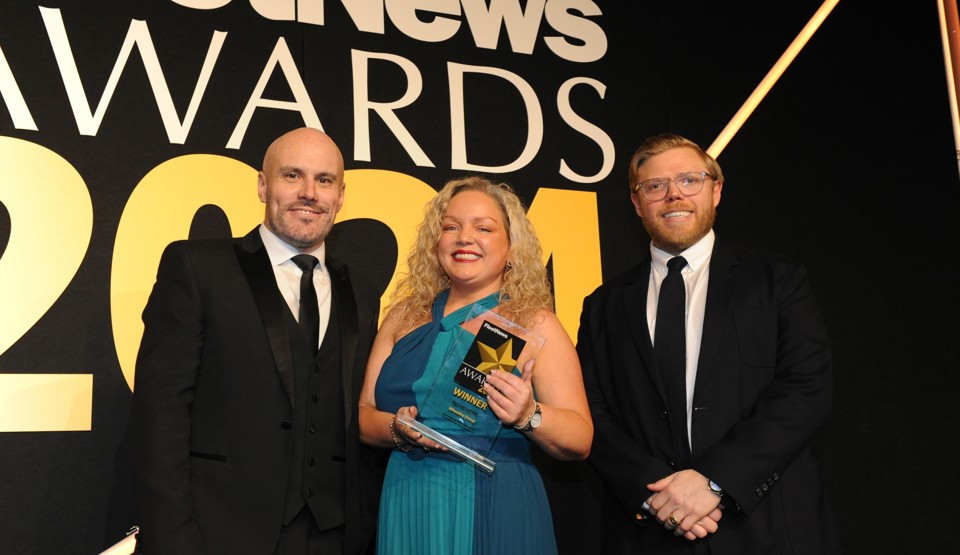
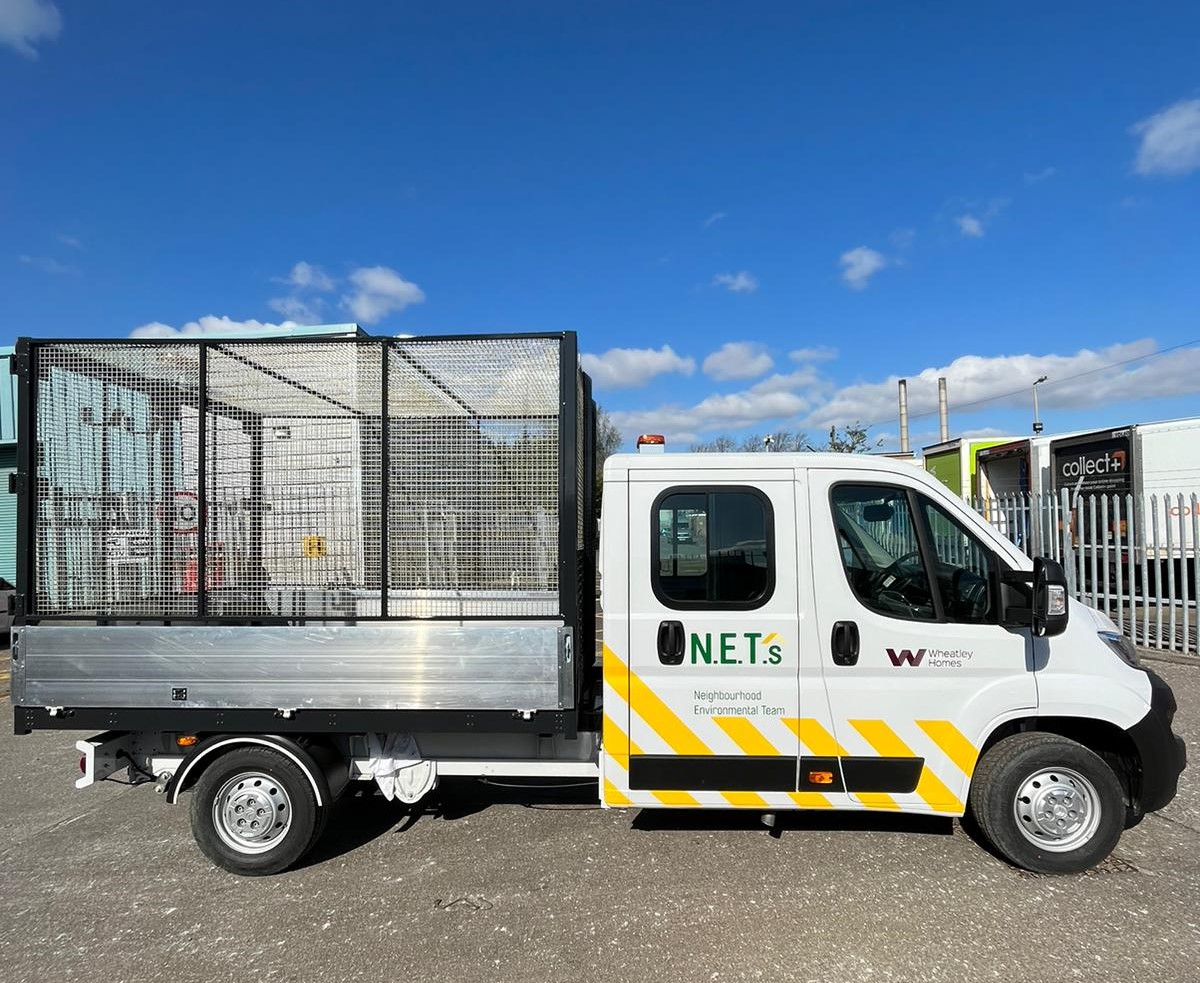
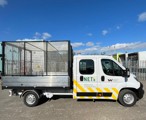

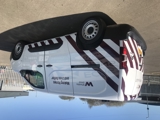







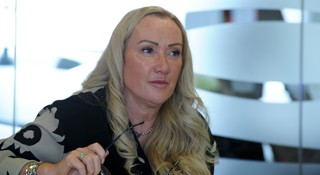












Login to comment
Comments
No comments have been made yet.